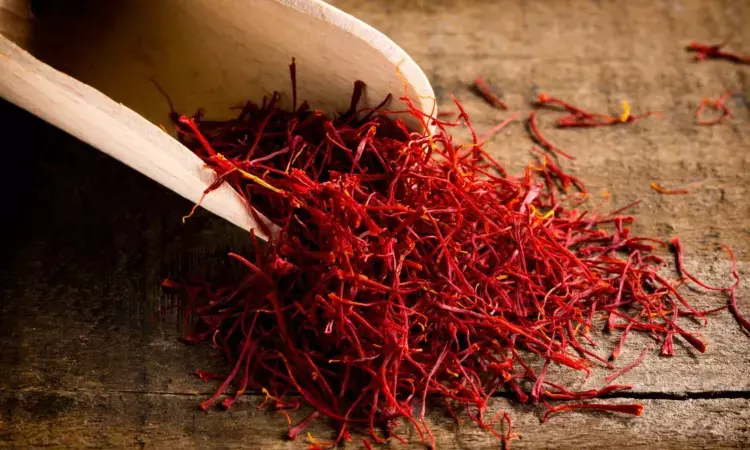- Home
- Medical news & Guidelines
- Anesthesiology
- Cardiology and CTVS
- Critical Care
- Dentistry
- Dermatology
- Diabetes and Endocrinology
- ENT
- Gastroenterology
- Medicine
- Nephrology
- Neurology
- Obstretics-Gynaecology
- Oncology
- Ophthalmology
- Orthopaedics
- Pediatrics-Neonatology
- Psychiatry
- Pulmonology
- Radiology
- Surgery
- Urology
- Laboratory Medicine
- Diet
- Nursing
- Paramedical
- Physiotherapy
- Health news
- Fact Check
- Bone Health Fact Check
- Brain Health Fact Check
- Cancer Related Fact Check
- Child Care Fact Check
- Dental and oral health fact check
- Diabetes and metabolic health fact check
- Diet and Nutrition Fact Check
- Eye and ENT Care Fact Check
- Fitness fact check
- Gut health fact check
- Heart health fact check
- Kidney health fact check
- Medical education fact check
- Men's health fact check
- Respiratory fact check
- Skin and hair care fact check
- Vaccine and Immunization fact check
- Women's health fact check
- AYUSH
- State News
- Andaman and Nicobar Islands
- Andhra Pradesh
- Arunachal Pradesh
- Assam
- Bihar
- Chandigarh
- Chattisgarh
- Dadra and Nagar Haveli
- Daman and Diu
- Delhi
- Goa
- Gujarat
- Haryana
- Himachal Pradesh
- Jammu & Kashmir
- Jharkhand
- Karnataka
- Kerala
- Ladakh
- Lakshadweep
- Madhya Pradesh
- Maharashtra
- Manipur
- Meghalaya
- Mizoram
- Nagaland
- Odisha
- Puducherry
- Punjab
- Rajasthan
- Sikkim
- Tamil Nadu
- Telangana
- Tripura
- Uttar Pradesh
- Uttrakhand
- West Bengal
- Medical Education
- Industry
Saffron Promising in Reducing the Symptoms of Ulcerative Colitis: Study

A study conducted at Yazd University explored the therapeutic benefits of saffron as an additional intervention to improve clinical manifestations in the patients with Ulcerative Colitis (UC). The findings were published in the journal of Inflammatory Bowel Diseases.
The study involved a total of 30 UC patients who were randomly assigned to receive a placebo, a low dose (25 mg), or a high dose (50 mg) of saffron twice daily for 8 weeks. The key markers including hemoglobin, platelet levels, CRP, ESR and fecal calprotectin were recorded along with clinical data such as the Simple Clinical Colitis Activity Index (SCCAI), Partial Mayo Score and Hamilton Depression Anxiety Score (HDRS).
The results indicated that the high dose saffron group experienced significant improvements in HDRS score, SCCAI, Partial Mayo score, fecal calprotectin, and CRP compared to baseline. To validate the findings, the outcomes collaborated with Howard University, where three UC patients received 50mg of saffron twice daily for 8 weeks. The inflammatory markers and cytokines were compared before and after the saffron treatment which revealed significant improvements in Partial Mayo Score, health-related quality of life and HDRS. The pro-inflammatory cytokines decreased, while the anti-inflammatory markers increased.
Also, 16S rDNA analysis on stool DNA for gut microbiome showed a decrease in gamma Proteobacteria and an enrichment in Ruminococcaceae. The study demonstrated that saffron led to a reduction in gamma Proteobacteria and enrichment in Ruminococcaceae by indicating its potential impact on the gut microbiome composition.
The study highlighted that all participants completed the study successfully with no adverse events reported which emphasized the safety profile of saffron supplementation. The findings suggest that incorporating saffron supplements along with standard treatment protocols may yield beneficial effects for individuals with UC which could offer improved clinical responses and a better quality of life.
Reference:
Ashktorab, H., Roghani, R. S., Rohgani, H., Chirumamilla, L., Farjana, N., Rashid, M., Aduli, F., Kibreab, A., Laiyemo, A., Challa, S. R., Oppong-Twene, P., & Brim, H. (2024). Protective role of saffron to reduce inflammation and improve clinical manifestations in Ulcerative colitis patients. Inflammatory Bowel Diseases, 30(Supplement_1), S00–S00. https://doi.org/10.1093/ibd/izae020.021
Neuroscience Masters graduate
Jacinthlyn Sylvia, a Neuroscience Master's graduate from Chennai has worked extensively in deciphering the neurobiology of cognition and motor control in aging. She also has spread-out exposure to Neurosurgery from her Bachelor’s. She is currently involved in active Neuro-Oncology research. She is an upcoming neuroscientist with a fiery passion for writing. Her news cover at Medical Dialogues feature recent discoveries and updates from the healthcare and biomedical research fields. She can be reached at editorial@medicaldialogues.in
Dr Kamal Kant Kohli-MBBS, DTCD- a chest specialist with more than 30 years of practice and a flair for writing clinical articles, Dr Kamal Kant Kohli joined Medical Dialogues as a Chief Editor of Medical News. Besides writing articles, as an editor, he proofreads and verifies all the medical content published on Medical Dialogues including those coming from journals, studies,medical conferences,guidelines etc. Email: drkohli@medicaldialogues.in. Contact no. 011-43720751


